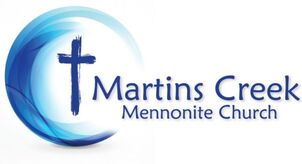|
This poem was written for Easter last year, in 2019. That was the year I furiously wrote forty poems from the book of Job and this was wedged, somewhat lost and overlooked, somewhere in the middle of all of that writing. I'd come across an Internet article that brought out some really interesting points surrounding Christ's Triumphal Entry. First of all, it happened on the 10th day of the Hebrew month of Nisan. Tell the whole community of Israel that on the tenth day of this month each man is to take a lamb for his family, one for each household . . . . Take care of them until the fourteenth day of the month, when all the members of the community of Israel must slaughter them at twilight. Exodus 12:3, 6 The 10th of Nisan floats around on the Jewish calendar. Last year, when I wrote this poem, the 10th of Nisan fell on Wednesday, April 15th. This year, 2020, it was on Saturday (yesterday), April 4th. In the third year of Jesus' ministry, it fell on Sunday — thus, our celebration of Palm Sunday. Per the above scripture, the Bible mentions the 10th day of Nisan when instituting the laws concerning Passover. The day is also mentioned in Joshua. The people crossed the Jordan on the tenth day of the first month. Then they camped at Gilgal, just east of Jericho. Joshua 4:19 All of this is brought out in the first half of the poem in order to set up the backdrop of Jesus' entry. If this is new information for you, as it was for me last year, it wasn't news to the Jews. They were well aware of their scriptures and laws and traditions, and of the parallels and imagery of this moment. It wasn't too long before this day that Jesus had raised Lazarus from the dead and his fame was yuge! This was it! This was the big one! Cry out with joy, O daughter of Zion! Shout jubilantly, O daughter of Jerusalem! Look—your King is coming; He is righteous and able to save. He comes seated humbly on a donkey, on a colt, a foal of a donkey. Zechariah 9:9 So, in the second half of the poem I wanted to convey the following information taken from the above-mentioned article: There are many who differ from this information. They say that Jesus entered Jerusalem through the Eastern Gate, and not the Sheep Gate; that it happened on Saturday or Monday or the entire event even happened in August. For the most part, this poem can accommodate those differences. For someone thinking this event happened on Monday, then "Monday" could easily be interchanged with "Sunday". For someone believing this event happened on Saturday, then "Sabbath" could be interchanged with "Sunday" without missing a beat. For those who say that Jesus entered through the Eastern Gate (also called the Golden Gate, or the Gate of Mercy), then that line could be replaced with: Through the Mercy Gate, Mercy has come. All joking aside, there may be some merit as to which gate was used. Consider the following: And, from another link: Then he led me to the gate, the gate facing east. And behold, the glory of the God of Israel was coming from the east. And the sound of his coming was like the sound of many waters, and the earth shone with his glory. And the vision I saw was just like the vision that I had seen when he came to destroy the city, and just like the vision that I had seen by the Chebar canal. And I fell on my face. As the glory of the Lord entered the temple by the gate facing east, the Spirit lifted me up and brought me into the inner court; and behold, the glory of the Lord filled the temple.. Ezekiel 43:1-5 I tweaked some wording from last year to this year. And, in the future, the line concerning the gate may change as well. But, for now, as it was written last year, I like the imagery of the Shepherd entering through the Sheep Gate on his triumphal entry into Jerusalem on Lamb Selection Day. Lamb Selection Day In the morning that Sunday, he crossed Jordan's River,
to the Jericho-side Jesus came. Years before, crossed the people God sought to deliver, on the tenth day of Nisan, the same. Forty years before that God was building a nation with a people awaiting I AM; they were asked to prepare for their coming salvation with the death of an innocent lamb. On the tenth day of Nisan, their lamb was selected; without defect or blemish or scar. For the next four days this year-old lamb was inspected, and protected from possible mar. As the lamb lived among them, was there any grieving when this lamb, on the fourteenth, was slain? He'd provide the last meal for its family soon leaving, and its blood on their door posts would stain. On this tenth day of Nisan — Jerusalem's thriving, over-crowded as you walk the streets. With the lambs born in Bethlehem quickly arriving, sometimes all you can hear are their bleats. Here he comes! On a donkey and foal he is seated; through the Sheep Gate the Shepherd has come. Cloaks laid down and with palm branches waving he's greeted: now he'll free them from Rome's heavy thumb. For another four days he allows their inspection, cross-examined and grilled to the end. In the garden, arresting this Lamb of perfection, he's betrayed with the kiss of a friend. From that Sunday when crowds — in their wonder — surround him, till he wrestles alone with the cost; on the tenth day of Nisan the crowds would have crowned him, by the fourteenth they scream for the cross.
0 Comments
Leave a Reply. |
AuthorFor more poetry like this, head to TheHawksQuill.com Archives
June 2021
Categories
All
|
